Trench foot 'rife' amongst Wales' homeless
- Published
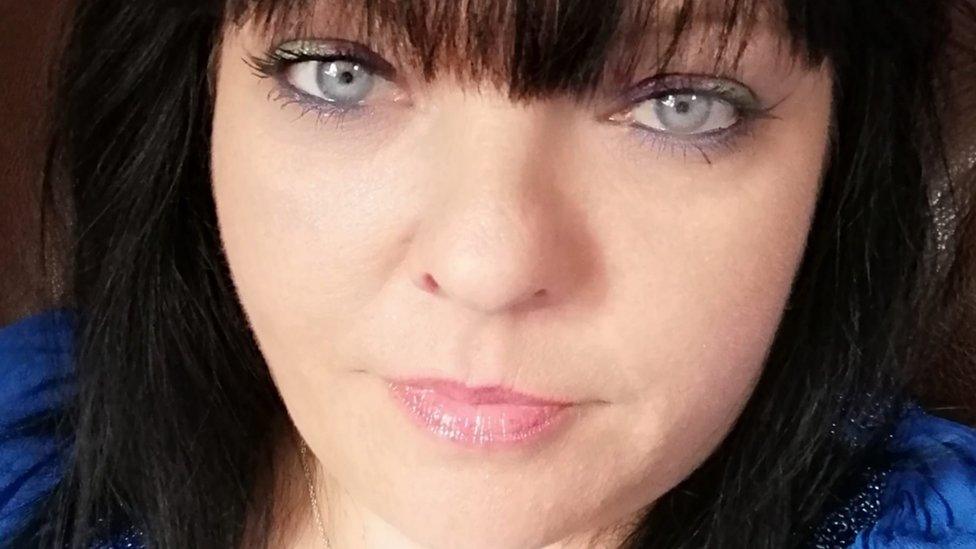
Donna-Marie Thomas has used her experiences of homelessness to help others
A nurse who fled an abusive family aged nine and ended up living on the streets of London, is on a mission to eradicate trench foot amongst Wales' homeless.
Donna-Marie Thomas, 47, said the condition is "rife" in the winter because of the damp weather.
She founded Homeless Hope, external after seeing a homeless man with appalling feet.
During the pandemic, up to 700 homeless people have died in England and Wales, social justice group Museum of Homelessness (MoH), external has claimed.
Homeless Hope, which was set up in 2018, has more than 160 volunteers and supports people across south Wales.
Ms Thomas, of Ystradgynlais, Powys, said people's toenails can be so long they are growing back into their toes.
"When someone is on drugs their hygiene isn't a priority - their feet get forgotten," she said.
"They will walk around in wet socks so their feet get macerated - which is where they are absolutely drenched in water and sodden like trench foot. We put talc to draw the water out, cut their toenails back and dress any ulcers."
The problem can be worsened because people often inject drugs between their toes.
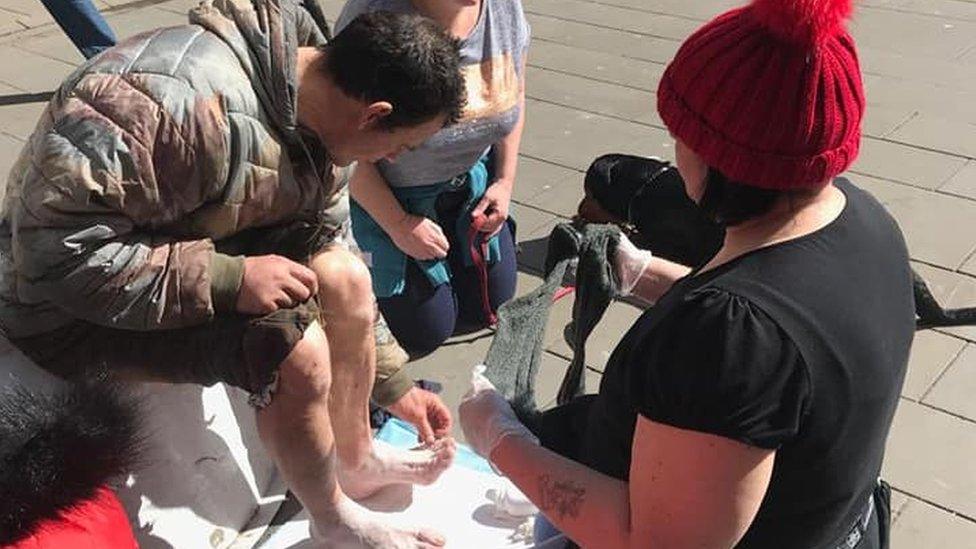
Homeless Help volunteers have been taking to the streets to help treat the homeless
MoH said the deaths figure during the pandemic was a rise of more than a third on the previous year, and has called for more to be done to stop such "terrible loss of life".
And in 2019, the Welsh Government released a report estimating 405 people were sleeping rough across Wales - itself an increase of 17 per cent compared with the same period a year earlier.
Ms Thomas said that while volunteers have been going out onto the street to help people, "there's so much more to do".
"So we've started working with nurses at the Huggard [homeless centre in Cardiff]," she said.
"Some of these people are so vulnerable - they could be young or pregnant.
"And many get embarrassed with their feet because when you take their shoes off their feet generally smell.
"You need to build up trust with them. Normally the second or third time we meet them they take off their shoes and talk about their past. It helps break down their barriers and see what they need."
Lived in doorways
Ms Thomas, who came to Wales around 2000, grew up in an abusive household in Hertfordshire, which she ran away from to live on the streets in London.
She was later put in care but continually escaped back to London to live in doorways and squats all over the capital for the next nine years.
Being signed out of the care system and given a bedsit flat in Luton, aged 18, prompted her to change her life.
She has not been homeless since and worked for the town's borough council for seven years before relocating to Wales to help support her father who had broken his hip.
When he recovered she stayed and got a job as a carer before becoming an auxiliary nurse at a hospital in Powys.

Trench foot's origins
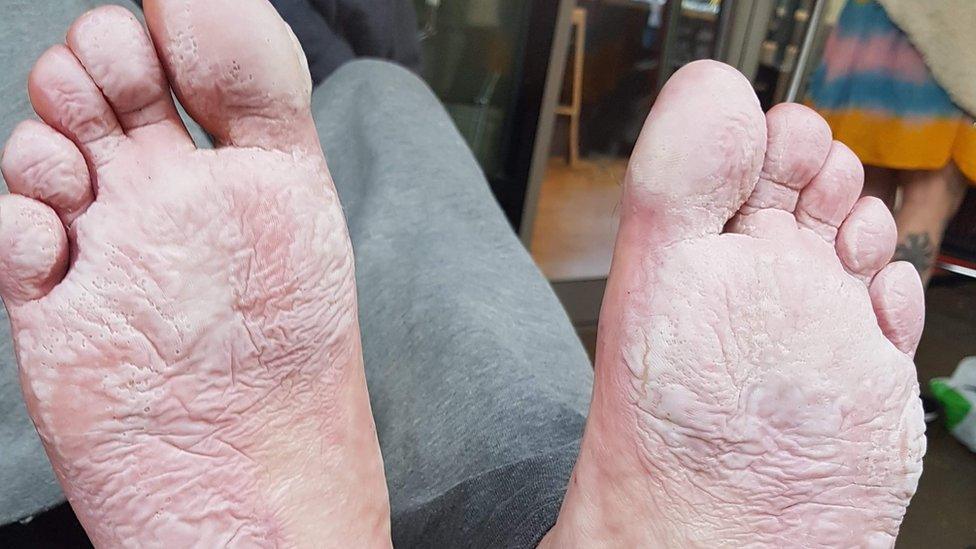
A homeless person's badly sodden feet
Trench foot is caused by prolonged exposure to a cold temperature that is usually above freezing but is damp and often unsanitary
It can quickly cause the skin to break down, increasing the risk of infection and emitting a rotten smell
The condition was first described during the Napoleonic Wars but earned its named during World War One when it is estimated to have contributed to 75,000 British soldiers' deaths

While she was inspired to do the nurse training, there were other obstacles that had to be overcome.
'I learnt to read and write in my 20s'
"At the time I couldn't read or write. I spoke to a young staff nurse who I'd spoken to on quite a few occasions about my past," she said.
"And she basically just said, 'You chose to live in the gutter, now choose to get out'.
"It's something that's always stayed with me - even now with a lot of decisions that I make.
"Choices are huge things in life. And it stayed with me because the young nurse died with cancer just a year after."
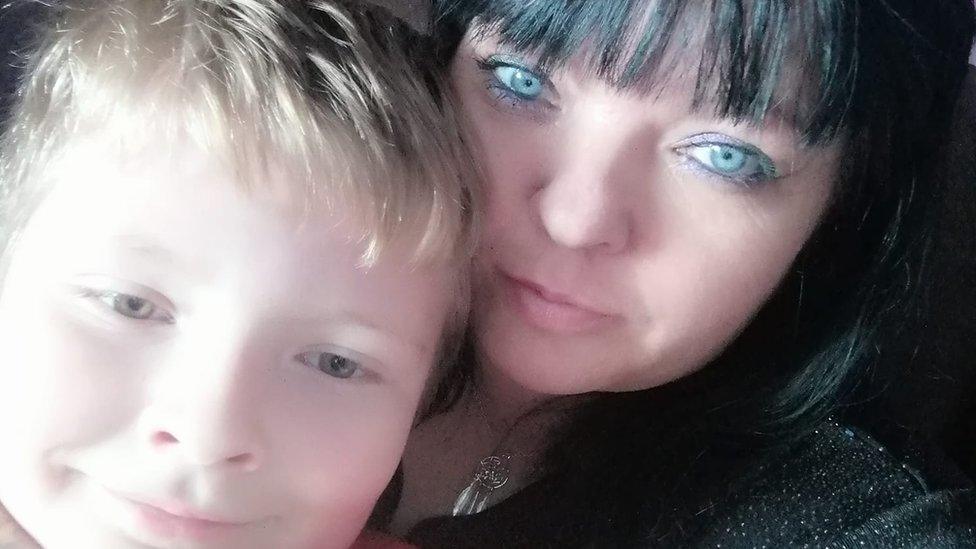
Donna-Marie with her eight-year-old son Jerrod
Ms Thomas went on to learn to read and write before doing an access course which allowed her to enrol on a nursing degree at Swansea University, in 2003.
Since graduating in 2006 she has had a son Jerrod, eight, and been awarded a prestigious Queen's Nurse title which is only given to individuals who have demonstrated a high level of commitment to patients.
She also speaks publicly about her experiences and hopes Homeless Hope will gain charity status shortly.
The group is currently trying to get enough money to buy a van so it can help more homeless people.
- Published12 November 2020
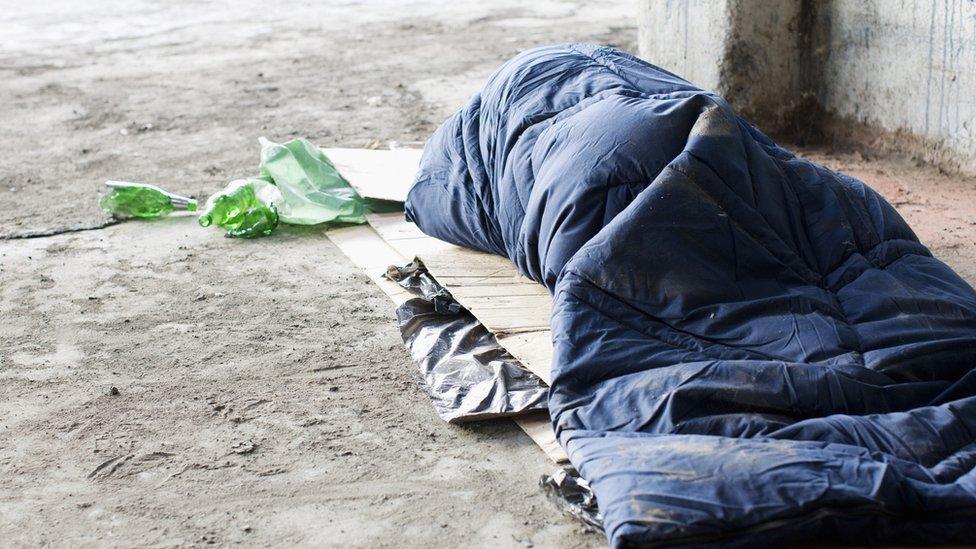
- Published9 February 2021
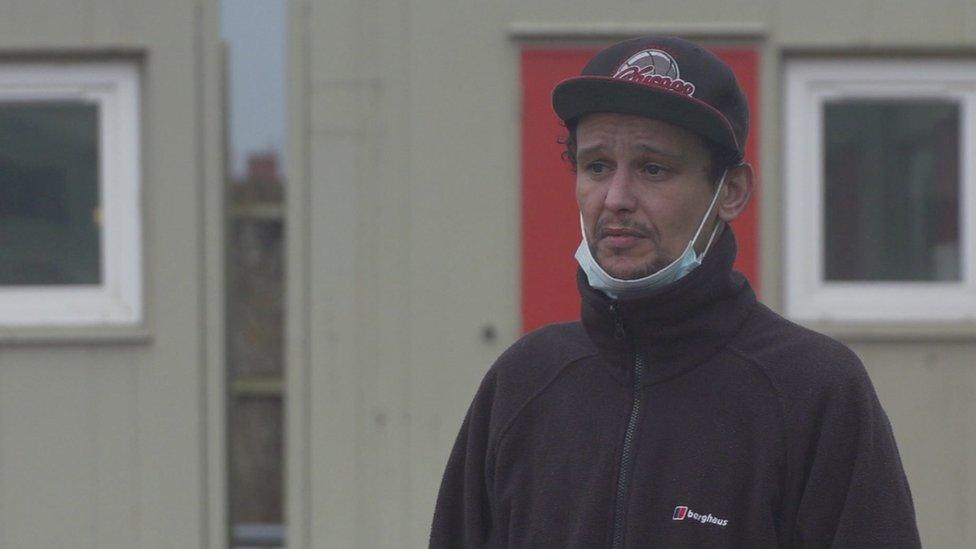
- Published8 June 2020
